
Bashir Bakhtiari, with pen name of Baache Azra is a pioneer Afghan journalist filmmaker who is better known for the caricatures and other graphic works he does among the Afghan artists.
His journalistic works refer to the years back although he still cooperates with some western free media as well, and his filmmaking activities are not being exposed by the media the way it should have been, but contemporarily the caricatures he draws are being noticeably shining in the Afghan media and being published in different sites and blogs all over the world.
His journalistic works refer to the years back although he still cooperates with some western free media as well, and his filmmaking activities are not being exposed by the media the way it should have been, but contemporarily the caricatures he draws are being noticeably shining in the Afghan media and being published in different sites and blogs all over the world.
Bakhtiari draws the caricatures as precisely as hitting a dart right into target point and that is because of the strong telepath he has with his addresses and the viewers of his works, and the people who enjoys his arts.
What he draws is very simple, but at the same time full of meanings, real but unnoticeable by ordinary people in their daily lives, and are hardly able to be explained by words meanwhile they are full of thousands of meaningful words inside each.
When you see, the caricatures he draws, you laugh and cry at the same time when you go the depth of his works. First for a while you are amazed how tenderly he noticed what you haven’t been able to notice, while you see it in your own life but then you feel may be you don’t have an eye that an artist has, therefore.
The point that makes Bashir Bakhtiari unique is his social background plus his glittering career and experiences; he has been an artist, a journalist from the people, has been raised within the people and has been thinking about and for his people; therefore his discoveries are never something out of harsh realities that exist within the Afghan society which have to be point out by his arts.
What he draws is very simple, but at the same time full of meanings, real but unnoticeable by ordinary people in their daily lives, and are hardly able to be explained by words meanwhile they are full of thousands of meaningful words inside each.
When you see, the caricatures he draws, you laugh and cry at the same time when you go the depth of his works. First for a while you are amazed how tenderly he noticed what you haven’t been able to notice, while you see it in your own life but then you feel may be you don’t have an eye that an artist has, therefore.
The point that makes Bashir Bakhtiari unique is his social background plus his glittering career and experiences; he has been an artist, a journalist from the people, has been raised within the people and has been thinking about and for his people; therefore his discoveries are never something out of harsh realities that exist within the Afghan society which have to be point out by his arts.
As many other artists and journalists of the country, Bakhtiari also had had to flee his country due to existence of threats and insecurity for his life as a reward for what he has been doing especially during the recent years, and now he lives abroad in “New Zealand” but is still strong enough to imagine the situation of his country through tenderly artistic eyes he has, even though being far away from his homeland.
We thought it would be better to hear some of his words as well to know Mr. Bakhtiari more in depth so this interview took place as a result.
This exclusive interview was made online with Mr. Bakhtiari in Dari for Dari version of Kabul Press. And Amin Wahidi did it. He then has translated into English with his broken English for Voice of Criticism.
We invite you enjoy reading the interview!
Amin Wahidi: Mr. Bakhtiari, first of all thank you very much for your valuable time to give us for this interview. Well, as the first question I would like to ask that,
As a caricaturist and graphic designer, what responsibilities do you feel in a country like Afghanistan?
Bashir Bakhtiari: Well, you are welcome and I should say as an answer to you that,
in a country with sick social infrastructures where ethnic fascism has a very important role, where the motto of the students would be condemning the universities, in a country where a gorilla becomes the minister of information and culture, in a country where suicide bombings become a part of the religious culture, in a country, where the senior politicians including the president don’t have nothing except lies and discriminations, there are two ways for an artist to choose, whether to compromise to all these misbehavior and keep quite, or suffer the whole life behind bars of imprisonment.
Amin Wahidi: How do you compare the language of a written text with a drawn caricature?
Bashir Bakhtiari: I think Caricatures are the clear imaginary words of a long boring text that are written in a specific language. Sometimes a caricature or a cartoon can have meanings equal to thousands of words while being sketched only with a few simple lines. The language of caricature is not confined to specific languages or cultures and it is generous enough to remove the language differences between the black and the white, so every one knows the language of caricature. Caricature is the only common language of the men while the text needs specific literacy for a language. Whether blue or oval eyes seeing a caricature drawn with a few lines, receive a concept without having needed to know a specific language. Or if I make it very short in one sentence, caricature is the common language of all nations and all cultures which is stronger than the written text of any pens.
As a caricaturist and graphic designer, what responsibilities do you feel in a country like Afghanistan?
Bashir Bakhtiari: Well, you are welcome and I should say as an answer to you that,
in a country with sick social infrastructures where ethnic fascism has a very important role, where the motto of the students would be condemning the universities, in a country where a gorilla becomes the minister of information and culture, in a country where suicide bombings become a part of the religious culture, in a country, where the senior politicians including the president don’t have nothing except lies and discriminations, there are two ways for an artist to choose, whether to compromise to all these misbehavior and keep quite, or suffer the whole life behind bars of imprisonment.
Amin Wahidi: How do you compare the language of a written text with a drawn caricature?
Bashir Bakhtiari: I think Caricatures are the clear imaginary words of a long boring text that are written in a specific language. Sometimes a caricature or a cartoon can have meanings equal to thousands of words while being sketched only with a few simple lines. The language of caricature is not confined to specific languages or cultures and it is generous enough to remove the language differences between the black and the white, so every one knows the language of caricature. Caricature is the only common language of the men while the text needs specific literacy for a language. Whether blue or oval eyes seeing a caricature drawn with a few lines, receive a concept without having needed to know a specific language. Or if I make it very short in one sentence, caricature is the common language of all nations and all cultures which is stronger than the written text of any pens.
Amin Wahidi: Would it be nice to hear more about your filmmaking and other graphic designing works please.
Bashir Bakhtiari: My graphic works have also been full of shortcomings as my caricatures unfortunately. However, it is about twenty years that I work on graphic works, modern designing, animation cartoons and digital films and so far, I have designed hundreds of logos, posters, billboards, book covers as well as currently I still work with some of the western journals.
And about film; actually I did not make a lot of fictions or short fictions but rather I made a lot of documentaries. During the Russian occupation and then during the civil war, I made more than 200 documentary films, and I have the honor of being the first and the last journalist filmmaker, who made documentary films of Mujahedeen operations in Kabul during the presence of the Russians. And then in the late years, I worked with Tolo TV for about ten months on entertainment programs such as, (Duplicator, the week album) and partly in news department as well. But since I didn’t like the work environment within Tolo TV, I resigned and within the last two years, I was working on TV commercial clips and advertising videos that are the most aired ones on television channels in Kabul. It has been a year that I am out of country, and the commercials I made are still being aired on different television channels in Kabul.
Amin Wahidi: It would be nice to hear about the role of caricature in the society and in the press of Afghanistan, the readers would appreciate to hear more in this regard;
Bashir Bakhtiari: Unfortunately, the same as many other things in our country, caricatures have not found their place and role in the society as they had to.
While technology is very advanced today but still we have many caricaturists who still try to keep the traditions of almost fifty years back. Conservativeness is an obstacle. I am talking of the artists who think working with computer is against Islamic or religious rules. There are still people who avoid adding pictures in their journals but are still using the old method of print. Right now I am not aware of it, but if you see up to last year of Anes Daily paper, how strange it is! Seeing all this I think the modern caricaturists have the right to feel oppressed in this country.
Amin Wahidi: What are you being inspired by mostly when you draw caricatures?
Bashir Bakhtiari: Well, mostly I don’t pay attention to the issues that are already spoken about, within the society. I mean, I want to present through my caricatures what has not been said yet or what is not being spoken about within the society yet. What I always expected from a caricature I drew was to get attention of the people to those issues that are not seen easily today but will become big obstacles tomorrow.
I thought my role was to magnify for the people the big and important issues that have little appearances or that show less dangerous or less important today but for sure, they have potential of becoming something important tomorrow. My motto has always been “if you have ability, demonstrate it today otherwise, tomorrow it will be very late.”
For instance, if I draw caricatures on Karzai’s hand in drug business or Assadullah Khaled’s real face as a Spy for Pakistan, or Shaikh Asif Mohseni’s role as a religious dealer and IRI Agent in Afghanistan, or Pashtoonization process by Ashraf Ghani Ahmadzai, for me it means that I got to know about these things later than everyone else, because the people are already aware of all these things, while as an artist I have to discover new things to present to the society that are not being yet discovered by anyone else.
Amin Wahidi: You maintain specific characteristics for the caricature characters you draw, would you explain it more why?
Bashir Bakhtiari: Yeah, actually the specific characters by a caricaturist are as his pen signatures that introduces him. The caricaturists, who have created specific characters in their works, do not need to sign their works with their pen names anymore.
As you see in the cartoons I drew, mostly I use tools as personages in them, but in the caricatures, I selected the characters for the personages from the people I have lived with a long time. Some of the viewers and some friends have criticized me saying that the characters in my caricatures are reflecting and pointing out only one specific ethnic while it is the reality.
That truth is that, when I drew a character with an eye out of socket, a peaked nose and a big turban on the head, it mostly a Taliban soldier , and a Taliban as a suicide attacker, as a looter and a killer can not be drawn nicer than this, it is what the reality says to us.
So in this case, therefore, this symbol of fierceness is always drawn with a husky body but bended and obedient, attended to orders, bare feet, with an untidy turban, a religious scroll in green “as a defender” on the shoulder, a dirty waist jacket, long and bushy beard, and glaring eyes! That is what a Taliban is like, no more than this.
And if the people are being slapped by them in the previous pages of the history and they were looted by them, if Ahmad Shah Durrani has looted the India and killed many people there, or if Abdul Rahman with the same specifics has killed major parts of the Hazaras, Nooristanis, Tajiks, Turks and Pashtoons, for more than two centrist this character has been source for boasting and pride in this country, but let the world know about the other side of the coin. Let the people know that the truth is not what is being written in the wrong histories. Let the people know what the British, the Russians, the Pakistani’s and then the Americans did on people under the shadow of these characters.
The people should know about more of the Mullah Trojans that are the real threats for the future of their country.
Bashir Bakhtiari: Yeah, actually the specific characters by a caricaturist are as his pen signatures that introduces him. The caricaturists, who have created specific characters in their works, do not need to sign their works with their pen names anymore.
As you see in the cartoons I drew, mostly I use tools as personages in them, but in the caricatures, I selected the characters for the personages from the people I have lived with a long time. Some of the viewers and some friends have criticized me saying that the characters in my caricatures are reflecting and pointing out only one specific ethnic while it is the reality.
That truth is that, when I drew a character with an eye out of socket, a peaked nose and a big turban on the head, it mostly a Taliban soldier , and a Taliban as a suicide attacker, as a looter and a killer can not be drawn nicer than this, it is what the reality says to us.
So in this case, therefore, this symbol of fierceness is always drawn with a husky body but bended and obedient, attended to orders, bare feet, with an untidy turban, a religious scroll in green “as a defender” on the shoulder, a dirty waist jacket, long and bushy beard, and glaring eyes! That is what a Taliban is like, no more than this.
And if the people are being slapped by them in the previous pages of the history and they were looted by them, if Ahmad Shah Durrani has looted the India and killed many people there, or if Abdul Rahman with the same specifics has killed major parts of the Hazaras, Nooristanis, Tajiks, Turks and Pashtoons, for more than two centrist this character has been source for boasting and pride in this country, but let the world know about the other side of the coin. Let the people know that the truth is not what is being written in the wrong histories. Let the people know what the British, the Russians, the Pakistani’s and then the Americans did on people under the shadow of these characters.
The people should know about more of the Mullah Trojans that are the real threats for the future of their country.
Amin Wahidi: Have you ever been faced with violence as a reaction of viewers of the caricatures you draw?
Bashir Bakhtiari: It was only once, when I drew a caricature of Shaikh Ibrahimi, a special representative of Ayatullah Khamenayee in Afghanistan, the Iranian Intelligence interrogated me, but any other occasion I don’t really remember right now.
Amin Wahidi: Some people think that caricatures are drawn to make others laugh, what are your opinions on other aspects of caricatures?
Bashir Bakhtiari: You raised a good point indeed, and I should say a caricature is more serious than only make fun of someone and make the others laugh. Caricature is drawn to tell a harsh truth, rather than banter of someone. That is the difference of a caricature with a joke, an irony or a comic.
A caricature is not what most of our people think. I think a good caricature never makes people laugh but it has awareness and message for them so it shouldn’t be expired before using period!
Amin Wahidi: What role does a caricature play in public brightening, or better to say, why caricature is drawn?
Bashir Bakhtiari: First it is important to know in which society we live and what are the price and the value of caricatures here, you know that the art of caricaturing can have a big role in advanced countries for instance, it could bring the prime minister to the court in a country like Germany or in Cuba in could lead the revolution, or it could predict the terror of Regan. It could increase the national revenue in Mexico, or it could cause the heart attack for Japan prime minister. But in countries like Afghanistan, Iran, Saudi Arabia, where religion is a tool of pressure, drawing caricature is the primary way to face imprisonment, beating up by the police, and finally falling for execution. But in general caricature is a strong and flexible medium that can play a leading role in the society.
It can motivate or destroy the mentality of the society which depends on how it is used.
Amin Wahidi: From the caricaturists, whose caricatures do you like personally?
Amin Wahidi: Some people think that caricatures are drawn to make others laugh, what are your opinions on other aspects of caricatures?
Bashir Bakhtiari: You raised a good point indeed, and I should say a caricature is more serious than only make fun of someone and make the others laugh. Caricature is drawn to tell a harsh truth, rather than banter of someone. That is the difference of a caricature with a joke, an irony or a comic.
A caricature is not what most of our people think. I think a good caricature never makes people laugh but it has awareness and message for them so it shouldn’t be expired before using period!
Amin Wahidi: What role does a caricature play in public brightening, or better to say, why caricature is drawn?
Bashir Bakhtiari: First it is important to know in which society we live and what are the price and the value of caricatures here, you know that the art of caricaturing can have a big role in advanced countries for instance, it could bring the prime minister to the court in a country like Germany or in Cuba in could lead the revolution, or it could predict the terror of Regan. It could increase the national revenue in Mexico, or it could cause the heart attack for Japan prime minister. But in countries like Afghanistan, Iran, Saudi Arabia, where religion is a tool of pressure, drawing caricature is the primary way to face imprisonment, beating up by the police, and finally falling for execution. But in general caricature is a strong and flexible medium that can play a leading role in the society.
It can motivate or destroy the mentality of the society which depends on how it is used.
Amin Wahidi: From the caricaturists, whose caricatures do you like personally?
Bashir Bakhtiari: unfortunately among our Afghans, I don’t really see any caricaturists who have been following it seriously, almost every one is moving around the zero point not further than that.
What most of our caricatures present to the society, are similar to the already chewed morsels that are given back to the society. I mean the caricaturists repeat what they hear from the people and rarely do new things with their own creativity.
There are many reasons beyond it unfortunately, first there are not new things to say, there is lack of concentration on the issues and then lack of support of the artist community. Only in the far off the region there are many great masters in this field whose works are really appreciable and each has many things to say; Aydin Aghdashloo, Mikhail Zlatkovsky, Kozobokeen, Arth, Bartak and others.
But in the near region, Chinese, Iranian, Turkish and Bahrainian Caricaturists are very famous world wide.
Amin Wahidi: Do you laugh when you draw your caricatures or not?
What most of our caricatures present to the society, are similar to the already chewed morsels that are given back to the society. I mean the caricaturists repeat what they hear from the people and rarely do new things with their own creativity.
There are many reasons beyond it unfortunately, first there are not new things to say, there is lack of concentration on the issues and then lack of support of the artist community. Only in the far off the region there are many great masters in this field whose works are really appreciable and each has many things to say; Aydin Aghdashloo, Mikhail Zlatkovsky, Kozobokeen, Arth, Bartak and others.
But in the near region, Chinese, Iranian, Turkish and Bahrainian Caricaturists are very famous world wide.
Amin Wahidi: Do you laugh when you draw your caricatures or not?
Bashir Bakhtiari: I don’t I have ever worked on a funny caricature, because my caricatures do not make people laugh. The main core of my works are always, mixed with questions and pains and pains never make people laugh.
And I don’t joke with the viewers and the addresses of my works either, so I like to be serious when I have something to say.
It is the way, or the form of saying in which I want to present my feelings and what I want to say to my viewers through my caricatures.
Amin Wahidi: When do you enjoy more; when your caricature makes viewers laugh or when it makes them angry?
And I don’t joke with the viewers and the addresses of my works either, so I like to be serious when I have something to say.
It is the way, or the form of saying in which I want to present my feelings and what I want to say to my viewers through my caricatures.
Amin Wahidi: When do you enjoy more; when your caricature makes viewers laugh or when it makes them angry?
Bashir Bakhtiari: My main goal to draw caricatures is to deliver to the others the realities and the harsh truth I feel. I enjoy the most when I feel that I could deliver my message through the caricature I drew. My only satisfactory is my ability to deliver to the people what I have in my heart to say in the form of caricature.
Amin Wahidi: Mr. Bakhtiari, thank you very much indeed for your time and nice talks.
Amin Wahidi: Mr. Bakhtiari, thank you very much indeed for your time and nice talks.
Bashir Bakhtiari: You are welcome and have a nice time.
Follow Voice of Criticism for socio- political updates in Afghanistan
Follow Kabul Press for the latest analysis and reports about Afghanistan and the region
Visit Deedenow Cinema for the updates on Afghan Arts and Cinema


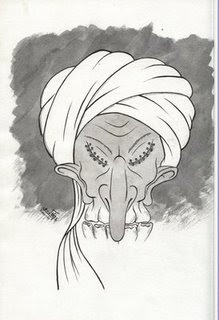
















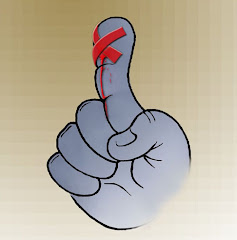

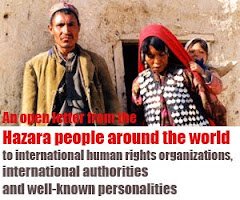


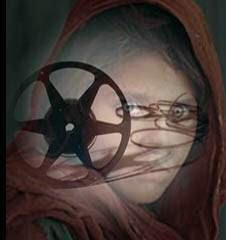
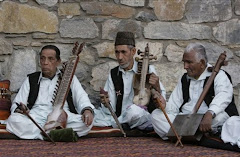
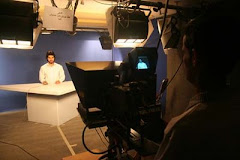

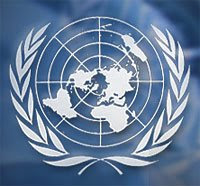
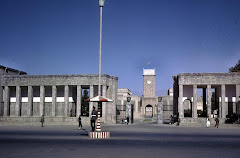



No comments:
Post a Comment